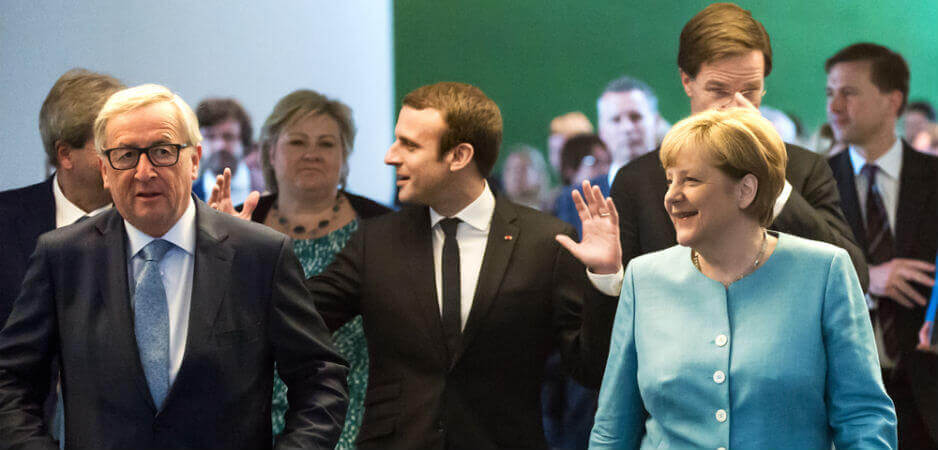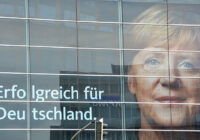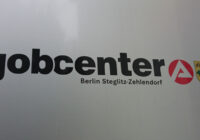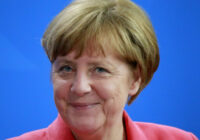Trump’s election has had the unexpected effect of fostering greater initiative from the EU, forcing Europe into taking on a bigger role on the global stage.
The day after Donald Trump’s election as US president, a shocked Frank-Walter Steinmeier, then Germany’s foreign minister and now president, said of the transatlantic relationship: “I don’t want to sugarcoat it: Nothing will be easier and much will be more difficult.” Uncertainty still reigns, as evidenced by the consternation following Trump’s refusal to state his commitment to Article 5, NATO’s collective defense clause, and his declaration that the United States would withdraw from the Paris Climate Agreement. Yet Trump’s election has had the unexpected effect of fostering greater initiative from the European Union and forcing Europe into taking on a bigger role on the global stage.
German Chancellor Angela Merkel clearly articulated this new reality when she stated that, “We Europeans have to take our destiny into our own hands.” Over the past year, particularly in the six months since Emmanuel Macron’s election as president of France, European countries have come together to affect change and take on leadership in three key areas: defense, climate and trade.
The idea of a European army has a long history, but until recently found little support among EU member states. The combination of Trump’s skepticism toward NATO and the impending exit of United Kingdom, one of Europe’s most important military forces, has galvanized the European Union to come together on defense and security policy. On November 13, the EU took a first official step toward a joint military force when 23 member countries signed a pact to collectively invest in military equipment, research and development, and the deployment of armed forces. The goal is to “help reinforce the EU’s strategic autonomy to act alone when necessary and with partners whenever possible” and foster greater cooperation against Europe-wide threats such as cyber attacks or hybrid warfare.
Although the combined European force will not be able to match the capabilities of larger armies such as that of the United States, the defense pact marks a new phase in pan-European security cooperation and military integration. Enhanced operational cooperation will, for example, allow European armies to conduct their missions in locations such as Mali and Niger without relying on NATO support, something that is currently not possible.
The second area in which the European Union has taken a lead over the past year is on climate policy. After President Trump announced US withdrawal from the Paris Climate Agreement in June, the recent UN Climate Change Conference in Bonn provided a glimmer of hope for climate policy as European countries took the lead in reviving and implementing the 2015 Paris accords. In one notable example, 10 EU states joined the Powering Past Coal Alliance, which aims to phase out coal use in highly developed countries by 2030. The European Union also agreed to reform the Emissions Trading System, the EU’s pioneering scheme for reducing emissions, by limiting the number of certificates to push up the price of carbon. Emmanuel Macron has high hopes for European climate policy, proposing that “Europe replaces America” as the global leader. At a time when the United States is moving backwards on climate policy, Europe seems determined to back its rhetoric with concrete actions.
The final area of renewed European focus is trade policy. After Trump’s election and polling in several EU states throughout 2017, negotiations on the controversial Transatlantic Trade and Investment Partnership (TTIP) have been paused and the treaty’s future, at least under the Trump administration, looks grim. Yet that has not stopped the European Union from stepping into the position of global trade leadership vacated by Trump. Trump’s abandonment of the Trans-Pacific Partnership (TPP) and his proposed renegotiation of NAFTA all opened the door for the European Union to dictate the new terms of global trade. The EU is aiming to shortly conclude deals with Japan, Mexico, the Mercosur bloc, Australia, New Zealand and several Asian countries, which, combined with existing trade deals, would link 2 billion people and almost half of global economic output.
In particular, America’s absence from the TPP has pushed countries such as Japan closer to Europe. The EU-Japanese trade treaty established Europe’s power in setting global standards, with Japan even agreeing to make its automobile production standards compatible EU regulations. With the United States publicly retreating from trade and the global structures that facilitate it, the European Union is taking advantage of the opportunity to increase its number of trade pacts, link its markets with dynamic regions such as Asia and South America and become the regulatory standard-setter across a range of global industries.
Despite these developments, Europe faces several obstacles to truly taking a global leadership role, especially as major differences between Trump and the European Union on the Iran nuclear deal and Russian electoral meddling persist. Europe will continue to remain dependent on the United States for security guarantees despite the new European defense pact. The greatest hindrances to European global leadership lie within the union itself, however, as the growing power of Euroskeptics makes it difficult for governments to commit to further integration. Fundamental disagreements about the future of the EU prevent the union from moving forward to a more effective and efficient model, which is necessary for decisive European global leadership. Nevertheless, the danger posed by Trump’s election has finally given the European Union the impetus to overcome its challenges and bring about real European leadership.
*[Young Professionals in Foreign Policy is a partner institution of Fair Observer.]
The views expressed in this article are the author’s own and do not necessarily reflect Fair Observer’s editorial policy.
Photo Credit: photocosmos1 / Shutterstock.com
Support Fair Observer
We rely on your support for our independence, diversity and quality.
For more than 10 years, Fair Observer has been free, fair and independent. No billionaire owns us, no advertisers control us. We are a reader-supported nonprofit. Unlike many other publications, we keep our content free for readers regardless of where they live or whether they can afford to pay. We have no paywalls and no ads.
In the post-truth era of fake news, echo chambers and filter bubbles, we publish a plurality of perspectives from around the world. Anyone can publish with us, but everyone goes through a rigorous editorial process. So, you get fact-checked, well-reasoned content instead of noise.
We publish 2,500+ voices from 90+ countries. We also conduct education and training programs
on subjects ranging from digital media and journalism to writing and critical thinking. This
doesn’t come cheap. Servers, editors, trainers and web developers cost
money.
Please consider supporting us on a regular basis as a recurring donor or a
sustaining member.
Will you support FO’s journalism?
We rely on your support for our independence, diversity and quality.







